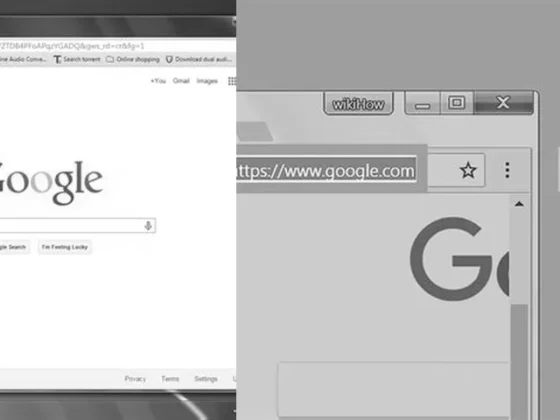What Sets a Dell Chromebook Apart from a Laptop? Unveiling the Key Differences: Are you stuck in the eternal debate of Dell Chromebook vs. Laptop? Well, fret not! We’re here to unravel the mystery and help you make an informed decision. Whether you’re a tech enthusiast or just someone in dire need of a new device, understanding the difference between these two options is crucial. So, buckle up and get ready to explore the world of computing as we dive into the realm of Dell Chromebooks and laptops. Get ready to discover the unique features, performance considerations, and even find out if a Chromebook can truly replace a laptop. By the end of this article, you’ll have all the knowledge you need to make the right choice. So, grab a cup of coffee and let’s get started!
Understanding the Core Differences
When deciding between a Dell Chromebook and a traditional laptop, it’s essential to understand the fundamental distinctions that set them apart. Chromebooks, such as those offered by Dell, are lightweight, cloud-centric devices that run on Google’s ChromeOS, a streamlined operating system designed for efficiency and ease of use.
Operating System and Compatibility
The most glaring difference between the two lies in the operating system. ChromeOS is distinct from Windows, Mac, or Linux systems you typically find on laptops. Consequently, ChromeOS cannot run Windows or Mac apps natively, which defines much of the user experience and the device’s capabilities.
Hardware Specifications
On the hardware front, Dell Chromebooks often sport lower-powered processors, reduced amounts of RAM, and smaller quantities of local storage compared to their laptop counterparts. But it’s worth noting that the landscape is evolving, with some high-end Chromebooks boasting better specs than many contemporary laptops.
Performance and Usage Considerations
Performance is a critical factor when comparing Chromebooks and laptops. As a general rule, Chromebooks are typically less powerful than standard laptops, which can influence the type of tasks they are best suited for.
Handling Large Projects and Multitasking
Chromebooks may struggle with big projects or keeping multiple tabs and applications open simultaneously. This limitation stems from their traditionally less robust processors and memory, which are usually optimized for basic tasks and web-based applications.
Application Availability
For users who rely on specific software suites, such as Adobe Photoshop, the inability to install such applications on a Chromebook may be a significant drawback. While there are web-based or alternative apps available, they may not offer the same features or performance as their desktop counterparts.
Advanced Computing Needs
For more demanding computing tasks, such as advanced photo and video editing, 3D modeling, or software development, a Windows, Mac, or Linux laptop typically offers the necessary power and compatibility.
Software Ecosystem
The range of available software for ChromeOS is growing, but it still lags behind the more established ecosystems of Windows and MacOS. If specific applications are essential for your work or hobbies, the limitation in software availability on Chromebooks is an important consideration.
Benefits of Opting for a Dell Chromebook
Despite the performance differences, Dell Chromebooks come with their own set of advantages that make them an attractive option for certain users.
Designed for Simplicity
Chromebooks are engineered for simplicity, excelling in areas where complexity is unnecessary. They provide an intuitive user interface, seamless integration with Google services, and a maintenance-free experience with automatic updates and virus protection.
Long Battery Life and Mobility
The streamlined nature of ChromeOS allows for excellent battery life. Dell Chromebooks often feature all-day battery life, which, combined with their lightweight design, provides enhanced mobility for users on the go.
Affordability
One of the most compelling reasons to choose a Chromebook is their affordability. They typically come at a lower price point compared to laptops with similar build quality, making them ideal for educational settings or users with straightforward computing needs.
Can a Chromebook Replace a Laptop?
Whether a Chromebook can serve as a complete laptop replacement depends on the user’s requirements. For those who spend most of their computer time on the web, using cloud services, or performing basic tasks like word processing and casual entertainment, a Chromebook can be an excellent choice.
Everyday Use and Cloud Dependence
For everyday use, Chromebooks are highly capable. They offer fast boot times, easy access to web-based tools, and sufficient power to handle everyday computing tasks. The reliance on cloud storage and apps also means that the local storage limitations are less of a concern.
Education and Business Use
In education and certain business contexts, Chromebooks provide a cost-effective, secure, and easy-to-manage solution. Their long battery life and portability make them ideal for students and mobile workers who do not require specialized software or computing power.
Conclusion: Making the Right Choice
Ultimately, the choice between a Dell Chromebook and a laptop boils down to your computing needs and preferences. If your activities are web-centric and your software needs are met within the ChromeOS ecosystem, a Chromebook is a smart, cost-effective choice. However, for users who require specific applications, high-end computing power, or prefer the flexibility of a traditional OS, a laptop would be the better investment.
By carefully considering the differences in performance, compatibility, and intended use, you can make an informed decision that aligns with your personal or professional computing requirements.
FAQ & Related Questions about Dell Chromebooks and Laptops
Q: What is the difference between a Dell Chromebook and a laptop?
A: A Dell Chromebook is a type of laptop that runs on ChromeOS, while a laptop can run on various operating systems. Chromebooks generally have lower-powered processors, less RAM, and less local storage compared to traditional laptops.
Q: Which is better, a Chromebook or a laptop?
A: The answer depends on your needs. Chromebooks are typically less powerful but offer simplicity, longer battery life, greater mobility, and more affordable pricing. Laptops, on the other hand, provide more processing power and storage options.
Q: What are the benefits of a Dell Chromebook?
A: Dell Chromebooks, like other Chromebooks, are designed for simplicity and affordability. They have long battery life, are highly portable, and lack unnecessary features that can add weight, cost, and complexity to standard laptops.
Q: Can a Chromebook do everything a laptop does?
A: Almost. Chromebooks can perform most tasks that people commonly use laptops for. They can browse websites, check emails, watch online videos, and perform various online activities. However, they do not run Windows and primarily rely on the Chrome OS, which is similar to the Google Chrome web browser.
Q: Can you do everything on a Chromebook that you can do on a laptop?
A: While Chromebooks may not have the same capabilities as laptops running other operating systems, they can perform most online tasks. You can read websites, check emails, watch videos, and perform other online activities using a Chromebook. However, certain software and applications that are specific to other operating systems may not be available on Chromebooks.


